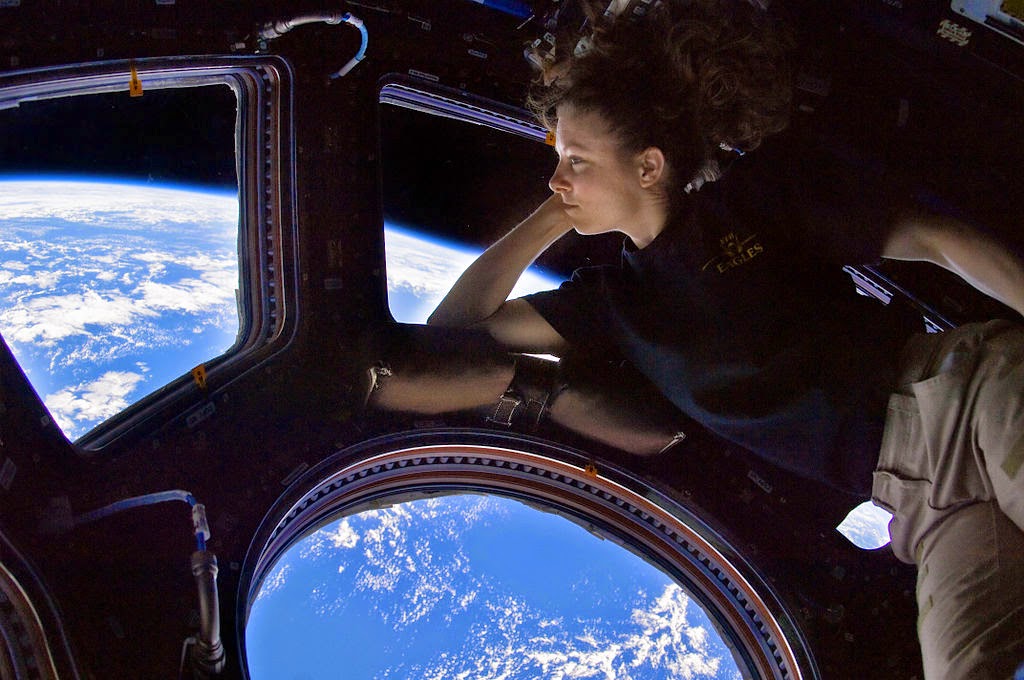 |
| Tracy Caldwell Dyson in the Cupola module in 2010 - Credit: NASA |
Despite it's importance, the general public isn't aware of what is happening on the space station on a regular basis. Information about research being conducted is not readily available. What information is out there for regular people can be hard to understand. A lot of people don't even know there is an active space program, let alone a space station. Many in the main-stream media ignore, or even miss-report on space station activities and events. Without knowing what is going on and why it is important, it is easy for people to question the need for space exploration.
Orbital Velocity is an attempt to bridge the communications gap between space agencies and companies and the public supporting the endeavors with their tax dollars. This blog in its current form can not do that. The first step is to establish a community of people that are willing to contribute to building a database of information about the ISS. Eventually, a dedicated website can be established with update videos, animations, interactives, and so much more.
For now, read the blog, comment and share with friends, and suggest topics. If you are interested in helping write content for the blog, feel free to email Derek Richardson at racengineer17@gmail.com.
With dedication and, Orbital Velocity can be a hub of ISS information that can inspire the next generation of explorers.
This is a short film created by Shut Up Infinity Films. It is the story of an astronaut that wants to go into space but can't because there is no access. Spaceman Sal doesn't have to be left "grounded" on earth if the public can be shown that space is worth it.
No comments:
Post a Comment